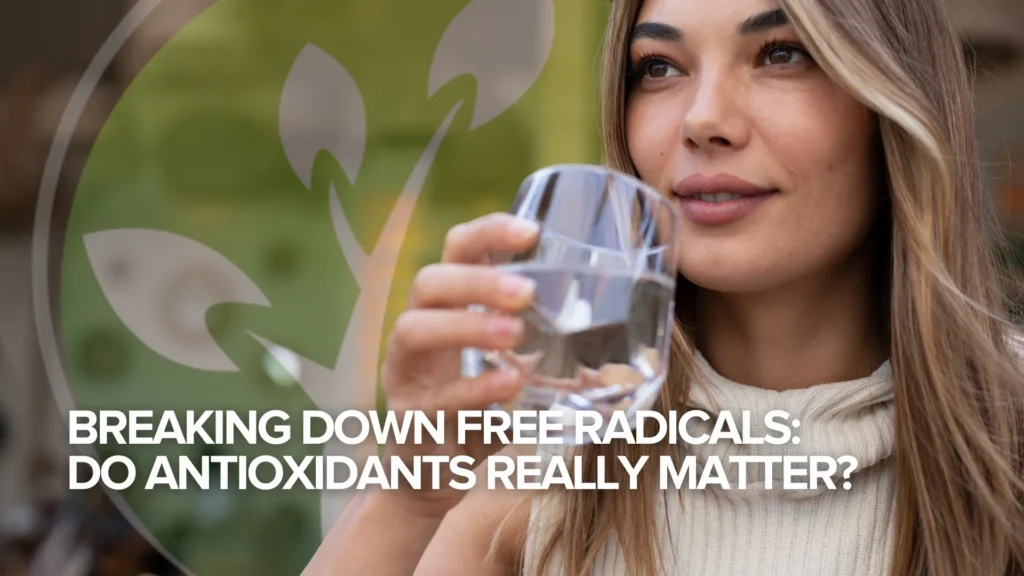We hear about them all the time—free radicals, antioxidants, oxidative stress. They sound important, maybe even a little intimidating. But what are they really, and do we need to be concerned? More importantly, do antioxidants truly matter, or is this just another health trend? Let’s break it down in a simple, no-nonsense way.
What Are Free Radicals?
Imagine a tiny, unstable molecule zipping around inside your body, looking to snatch electrons from wherever it can. That’s a free radical. These unstable molecules are byproducts of normal bodily processes, like converting food into energy, as well as external factors such as pollution, cigarette smoke, and even excessive sun exposure.
While free radicals are a natural part of life, too many of them can cause damage. This process is called oxidative stress, and it’s been linked to aging and various health concerns. Think of it like rust forming on metal—when too much oxidation happens, things start to break down.
Enter Antioxidants: The Body’s Defense Team
This is where antioxidants come in. They act like bodyguards for your cells, donating electrons to free radicals and neutralizing their potential harm. The great part? Antioxidants do this without becoming unstable themselves.
Your body naturally produces some antioxidants, but you also get them from foods rich in vitamins C and E, selenium, flavonoids, and other compounds. You’ve probably heard of these powerhouses:
-
Vitamin C (found in citrus fruits, bell peppers, and leafy greens)
-
Vitamin E (found in nuts, seeds, and vegetable oils)
-
Beta-carotene (found in carrots, sweet potatoes, and spinach)
-
Polyphenols (found in berries, dark chocolate, and green tea)

Do Antioxidants Really Matter?
Yes, but not in the way that marketing sometimes suggests. You don’t need to overload your system with antioxidant supplements or fad superfoods to “cure” anything overnight. What matters most is balance—your body naturally regulates oxidative stress, and a well-rounded diet helps keep free radicals in check.
However, modern lifestyles expose us to more oxidative stress than ever before. Poor diets, high stress, environmental toxins, and lack of sleep can all contribute to an imbalance. This is why supporting your body’s natural defense system is key.
Beyond Traditional Antioxidants: A Unique Approach
Eating foods rich in antioxidants is a great habit, but there’s another way to help your body manage oxidative stress. NANO SOMA, a unique nano-emulsion of policosanol, doesn’t just supply antioxidants—it works with your body, encouraging it to handle oxidative stress on its own and stay in balance.*
One of the most fascinating things about NANO SOMA is that it actually prompts your body to make its own vitamin C.* That means your system has access to and can sustain much higher levels than is possible through external supplementation.
Unlike traditional antioxidants that simply fight free radicals, NANO SOMA helps your body naturally regulate oxidative stress from the inside out.* It’s a gentle, effective way to support overall well-being and keep your cells functioning at their best.*

Final Thoughts
Antioxidants aren’t just a buzzword—they play a crucial role in maintaining cellular health. But the key takeaway is that our bodies are already designed to manage oxidative stress. The best approach? Support your body with nutrient-dense foods, a healthy lifestyle, and tools that encourage your natural processes, like NANO SOMA.*
By working with your body rather than just throwing in isolated antioxidants, you create the conditions for true, long-term well-being.
Are You Ready To See What It Can Do For You?
Tap the button below and discover how you can!
*These statements have not been evaluated by the US Food and Drug Administration. This product is not intended to diagnose or prescribe for any medical condition, nor to prevent, treat, mitigate, or cure such condition(s). If you have any illness or medical condition, consult your healthcare provider.


